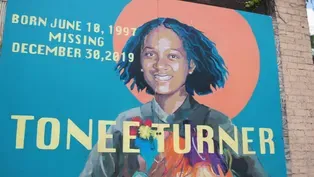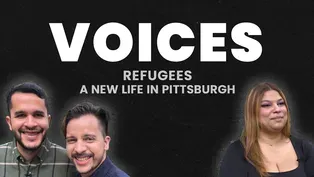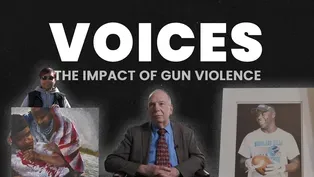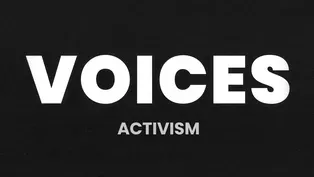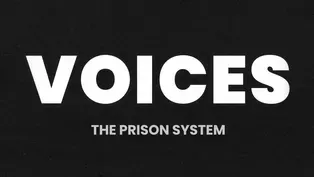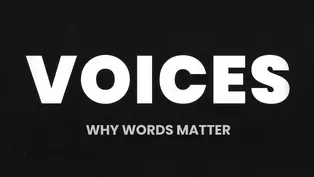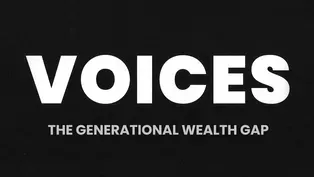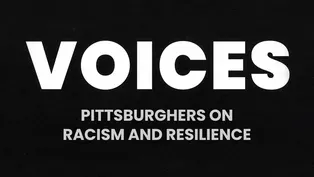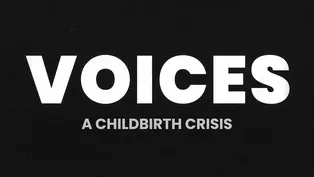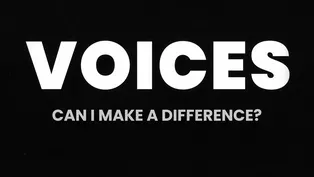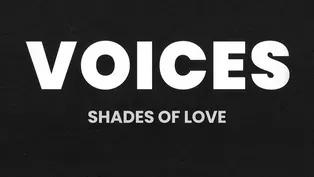WQED Digital Docs
VOICES: Gentrification & Displacement
11/1/2021 | 9m 59sVideo has Closed Captions
We look at gentrification and its impact on Pittsburgh's marginalized communities.
As Pittsburgh’s cost of living continues to rise, we look at gentrification and its impact on the city’s marginalized communities. When developers descend on Pittsburgh’s neighborhoods, who stands to gain and lose? How has it affected the city’s population? And who is working to make positive change?
WQED Digital Docs
VOICES: Gentrification & Displacement
11/1/2021 | 9m 59sVideo has Closed Captions
As Pittsburgh’s cost of living continues to rise, we look at gentrification and its impact on the city’s marginalized communities. When developers descend on Pittsburgh’s neighborhoods, who stands to gain and lose? How has it affected the city’s population? And who is working to make positive change?
How to Watch WQED Digital Docs
WQED Digital Docs is available to stream on pbs.org and the free PBS App, available on iPhone, Apple TV, Android TV, Android smartphones, Amazon Fire TV, Amazon Fire Tablet, Roku, Samsung Smart TV, and Vizio.
Providing Support for PBS.org
Learn Moreabout PBS online sponsorshipMore from This Collection
Video has Closed Captions
When a person of color goes missing, are they given the same consideration as other races? (11m 24s)
VOICES: Refugees: A New Life in Pittsburgh
Video has Closed Captions
Every year, hundreds of refugees arrive in Western Pennsylvania, hoping to start new. (7m 18s)
VOICES: The Impace of Gun Violence
Video has Closed Captions
While no two stories are the same, the impact of gun violence affects nearly everyone. (9m 38s)
Video has Closed Captions
Meet people who were moved by societal concerns to take action for the first time. (10m 48s)
Video has Closed Captions
Hear from formerly incarcerated local citizens on their experiences and hopes for change. (11m 8s)
Video has Closed Captions
This episode explores how derogatory terms enter the lexicon, and why words matter. (5m 52s)
VOICES: The Generational Wealth Gap
Video has Closed Captions
An absence of generational wealth among minority families often leads to obstacles. (7m 32s)
VOICES: Pittsburghers on Racism and Resilience
Video has Closed Captions
Pittsburghers of different backgrounds share their encounters with discrimination. (10m 45s)
Video has Closed Captions
Decades of inequity in the healthcare system have led to a crisis in Black maternal health (10m 9s)
VOICES: Can I Make a Difference?
Video has Closed Captions
Pittsburgh area youth talk about today’s social climate, racism, inequity, and more. (6m 31s)
Video has Closed Captions
Two couples of reflect on their personal experiences with interracial relationships. (10m 26s)
Providing Support for PBS.org
Learn Moreabout PBS online sponsorship(gentle piano music) - Neighborhoods adapt and change and grow.
- The land has been seen as more valuable than the people.
- We should be working to take the profit motive out of housing.
- Being displaced any time, whether it's justifiable or not, it's a traumatic experience.
- African Americans have been in Pittsburgh since at least the 1700s and there was a very strong abolitionist community in the Lower Hill.
(gentle music) 8,000 people and several hundred businesses in that area all basically pushed out to create this modern wonder, which is the way a lot of people talk about it, but the way the folks in the neighborhood looked at it, it was just a destruction of a very vibrant and historic part of the neighborhood.
A lot of property was rental property owned by other folks, a lot of the housing was demolished, and people just kind of went where they could.
So there was a tremendous amount of displacement to other areas in the Hill District and then also to other areas in the city.
(bright music) - The city of Pittsburgh is a place that has suffered from many decades of population decline.
The region has this unique economic history of suffering through the collapse of heavy industry, steel and coal.
Really, there's tremendous change in the characteristics of the city's population.
Age demographics are shifting in the region.
Race demographics are shifting in the region.
And then all these other shifts, who's able to live and afford to live in the city.
(dramatic music) - My neighbor who's paying like 75% of her income on housing, she also has health issues, so sometimes it comes down to, do I pay rent?
Do I pay for my medicine?
Do I buy groceries?
No one should have to live like that.
- The problem of gentrification is a lack of belief in the people and the power, the capacity, the strength, of the people that live in a particular place and a stronger focus on the, you know, the greener grass of some other folks that can come in and who already have the income.
- Public policy, the city, local neighborhood groups, are all focused on increasing value in their neighborhoods and making them better places to live.
The issue is you can be victims of your own success.
- So how do we, you know, build new property, incentivize folks to come here that are new, that are gonna add something to the table, while, at the same time, supporting people who already live here?
(gentle music) - As housing prices, rental prices, go up, will we continue to be counted as one of these most livable places?
(bright music) - The areas in urban communities that have the most vacant land, low-value property, are typically areas where black and brown people live, and usually those areas are very close to a lot of amenities.
A lot of the population is going into the county because the housing is just more affordable.
People are worried and they're scared.
When you move from the community that you've lived in for a long time, you're not just losing your housing, you're losing your social network.
- You have to have your priorities of what you think is most important in your city, and I think most important are the people, the culture of the city, the culture of a neighborhood, and that could all be managed.
It could have been managed in East Liberty.
(gentle music) I was part of a mass displacement and I realized if you don't have a roof over your head or your housing is threatened that it's hard to function or really to do anything, and so we just started a tenant council.
We had a big meeting with all the politicians who came, but nobody really did anything and so the mass displacement commenced.
I doubt seriously that I'll probably will ever get over, you know, what happened there and stuff.
- Can you improve a neighborhood, make it more livable, improve the housing stock, and then also retain the low prices for longstanding residents?
That's a difficult challenge.
(gentle music) - I moved to East Liberty with my mom.
We moved into the East Mall high-rise.
That was my home for 20 years.
The word went around that the high-rises were slated to be demolished.
All three high-rises had recognized tenant councils, so they got together and formed the Coalition of Organized Residents of East Liberty just so we could sit at the table with the stakeholders to say, "What's going to happen to us?"
There really wasn't much of a plan.
It's like, "Take a voucher.
You can move anywhere you want.
We'll pay for your move."
Not good enough.
What if we wanted to stay here in East Liberty?
What ended up happening is we filed a class action lawsuit and won the right to return to whatever they built.
It took many years, but we did it.
We did it.
I like to think that what we went through has helped other communities.
(bright music) - There's some very talented people who have been working at this housing issue for decades.
We talk about tenant-owned cooperages.
We talk about bringing land trusts to the communities.
And the land trust is basically the land is owned by all the people and so they have a say in who sells what and who buys what.
It can make a neighborhood permanently affordable.
- Inclusionary zoning makes it so that you have to have a certain percentage of your housing be affordable to folks who are below the area median income.
So there's a lot of really innovative stuff that can happen.
It's just a matter of who the powers that be decide to focus their attention on.
- Unless we build on a city that's inviting for everybody, regardless of race, gender, orientation, we have all the resources and tools here to do this.
- Listen to the people.
Take into consideration what their hopes, what their dreams are for themselves, for their children.
That's how you're going to build a healthy community, a healthy city, a healthy country.
